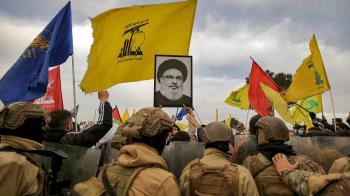Alwaght- The US and Taliban plan to ink an agreement on Saturday to secure American forces withdrawal from Afghanistan and starting talks between Kabul and the militants.
The accord, to be signed in Doha, comes after more than a year of talks between the Taliban and the US that faltered repeatedly as violence raged.
While the deal's contents have not been publicly disclosed, it is expected to see the Pentagon begin pulling troops from Afghanistan, where between 12,000 -13,000 are currently based, AFP reported.
The US has said an initial drawdown over the coming months would be to about 8,600 -- similar to the troop level President Donald Trump inherited after his 2016 election win.
Further reductions depend on how well the Taliban honor pledges to start talks with the government of President Ashraf Ghani — who until now they have dismissed as a US-backed puppet — and seek a comprehensive "intra-Afghan" ceasefire and peace deal.
The militants are also supposed to guarantee Afghanistan is never again used by terrorists groups such as al-Qaeda and ISIS to plot foreign attacks — a concept even some of Trump's closest advisors remain deeply skeptical of.
Saturday's signing comes after a week-long, partial truce that has mostly held across Afghanistan aimed at building confidence between the warring parties and showing the Taliban can control their forces.
While isolated attacks have continued in rural areas, US Secretary of State Mike Pompeo said Tuesday that the truce period was "working."
"We're on the cusp of an enormous, enormous political opportunity," he said.
More than 100,000 Afghan civilians have been killed or injured over the past decade, according to the United Nations, and the conflict has cost the US taxpayer more than $1 trillion in military and rebuilding costs since the US-led invasion of 2001.
Uncertainty
As many as 30 nations are expected to be represented at Saturday's signing in the Qatari capital, although notably, the Afghanistan government will not send a delegate, an Afghan official told AFP.
"We are not part of these negotiations. We don't trust the Taliban," the official told AFP.
The continued hatred may not bode well for future talks.
Compounding tensions, Afghanistan is in the midst of a full-blown political crisis, with the US refusing to unequivocally endorse Ghani's re-election months after a poll that was marred by fraud allegations.
Trump has repeatedly vowed to bring US troops home and end America's "stupid" wars while bemoaning Washington's global "policeman" role.
But analysts warn any rush to leave Afghanistan could create an unmanageable situation.
Washington "will shoe-horn this through and they're going to declare victory and then whatever happens after that they'll say 'that's on the Afghans'," Colin Clarke, a researcher at the Soufan Center think tank, told AFP.
"What incentive do the Taliban have to stick to the agreement, particularly once they have what they want, which is US withdrawal?"
Mediated by Qatari diplomats, the talks were often marathon affairs — sometimes tense, sometimes respectful — that stretched long into the night.
Both sides had appeared to be on the verge of agreeing a deal after a grueling ninth round of talks ended in September.
But Trump torpedoed the process following the death of a US serviceman in a Kabul attack blamed on the Taliban.
He then astonished many by announcing he had invited the Taliban to the US presidential retreat at Camp David before scrapping the encounter.
His famed unpredictability could yet see the Doha plans up-ended, although Trump vowed to "put his name" on a deal if the partial truce endures.
Deputy Taliban leader Sirajuddin Haqqani wrote in an editorial last week that "everyone has lost somebody they loved. Everyone is tired of war."
"I am convinced that the killing and the maiming must stop," he wrote in The New York Times.
But Clarke, the analyst, warned that Haqqani notably "didn't denounce Al-Qaeda" in the article, calling into question the Taliban's intention to go after terrorists.
The Taliban's welcoming of al-Qaeda on Afghan soil was the key reason for the US invasion following the 9/11 attacks.



























